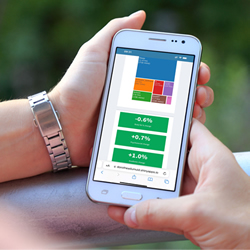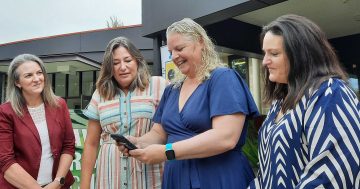 A new application (App) to help parents find the best combination of activities to help their children’s mental, physical, and academic outcomes has been released by the University of South Australia (UniSA).
A new application (App) to help parents find the best combination of activities to help their children’s mental, physical, and academic outcomes has been released by the University of South Australia (UniSA).
Hailed by the developers as ‘not too sport heavy’ and ‘not too sleep deprived’ the app accepts that finding the ‘just right’ balance in a child’s busy day can be a challenge.
While parents may struggle to squeeze in homework amid extracurricular commitments and downtime, the new world-first ‘Health-Day-App’ – Developed by University of South Australia in partnership with the Murdoch Children’s Research Institute – could provide the much-needed solution.
Lead researcher at the UniSA, Dot Dumuid said the App could help parents and health professionals better understand the relationships between children’s time use, health, and academic outcomes.
“How children use their time can have a big impact on their health, wellbeing, and productivity,” Dr Dumuid said.
“We know that screens are not great for children’s wellbeing, so if they’re choosing to play video games at the expense of playing sport, it’s easy to guess the negative impacts effects on their health,” she said.
“This app helps guide healthier behaviours. By tracking a child’s current activities over the day, and using the app to adjust these, we can model how any changes are expected to impact on their physical, wellbeing and academic performance.
“It’s a quick and easy tool that can predict health and wellbeing outcomes for children.”
Dr Dumuid said the app firstly requests users to input a child’s current 24-hour time usage across seven categories – sleep, screen time, physical activity, quiet time (such as reading or listening to music), passive transport (such as catching public transport), school-related time (including homework), and domestic/self-care (chores/getting ready).
“It also includes an advanced option for health professionals to account for puberty and social economic status,” the researcher said.
“Expected differences to body fat percentages, psychological health, and academic performance are presented in numerical and graphical formats,” she said.
“The Healthy-Day-App lets parents, carers and health professionals consider possible changes to a child’s day and predict how this might impact health outcomes,” Dr Dumuid said.
“I encourage parents to play around with it – it may just make you reconsider how much screen time your child has in the car, in a café, waiting for an appointment…try it and see. It may surprise you.”
The Healthy-Day-App can be accessed on this PS News link with the published 9-page study available in this link.











